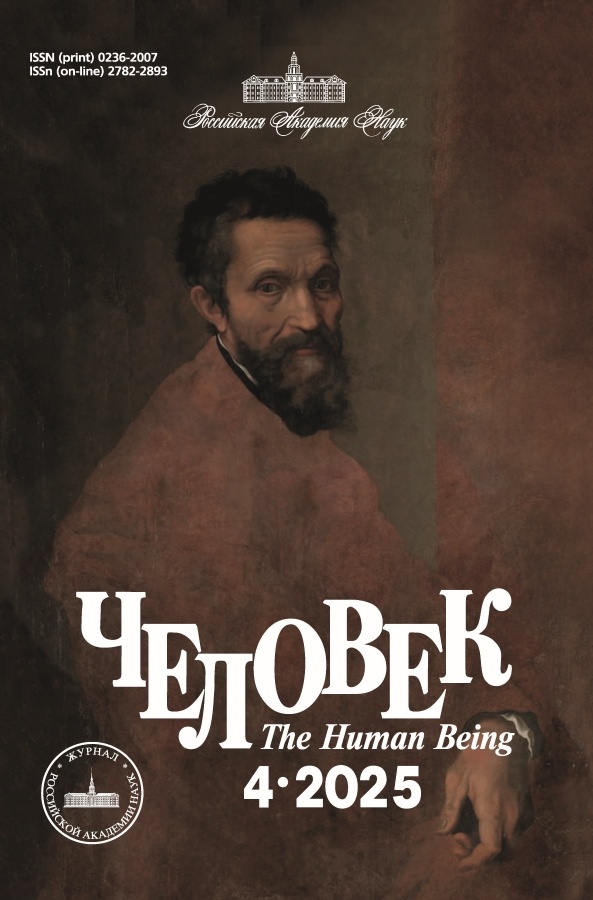The Cultural Foundations of Sustainable Urban Development
- Authors: Shtompel L.A.1, Tikhomirova E.G.2
-
Affiliations:
- Southern Federal University
- National Research Nuclear University «MEPhI»
- Issue: Vol 36, No 4 (2025)
- Pages: 36-57
- Section: Scientific research
- URL: https://bakhtiniada.ru/0236-2007/article/view/316601
- DOI: https://doi.org/10.31857/S0236200725040021
- ID: 316601
Abstract
About the authors
L. A. Shtompel
Southern Federal University
Email: lashtompel@sfedu.ru
Russian Federation, 344006 Rostov-on-Don, B. Sadovaya St., 105/42
E. G. Tikhomirova
National Research Nuclear University «MEPhI»
Email: katiaphilos@mail.ru
Russian Federation, 117342 Moscow, Kashirskoe Sh., 31
References
- Alexander J. Smysly social’noj zhizni: Kul’tursociologiya [The Meanings of Social Life: Cultural Sociology]. Moscow: Publishing House and Consulting Group “Praxis” Publ., 2013.
- Assman J. Kul’turnaya pamyat’. Pis’mo, pamyat’ o proshlom i politicheskaya identichnost’ v vysokih kul’turah drevnosti [Cultural Memory. Writing, Memory of the Past, and Political Identity in the High Cultures of Antiquity]. Moscow, 2004.
- Bakhtin M.M. Formy vremeni i hronotopa v romane. Ocherki po istoricheskoj poetike [Forms of Time and Chronotope in the Novel. Essays on Historical Poetics]. In Bakhtin M.M. Questions of Literature and Esthetics. Moscow: Fiction, 1975. P. 234–407.
- Bogdanova E. Granica mezhdu publichnym i privatnym v zvukovom soobshchestve: issledovanie sovremennogo rossijskogo sela [The boundary between public and private in the sound community: a study of the modern Russian village]. Laboratorium. 2017. N 9 (1). P. 4–29.
- Bourdieu P. Sociologiya social’nogo prostranstva [Sociology of Social Space]. Moscow: Institute of Experimental Sociology; St. Petersburg: Althea Publ., 2005.
- Weber M. O nekotoryh kategoriyah ponimayushchej sociologii [On Some Categories of Understanding Sociology]. In Weber M. Selected Works. Moscow: Progress Publ., 1990. P. 495–544.
- Oldenburg R. Tret’e mesto: kafe, kofejni, knizhnye magaziny, bary, salony krasoty i drugie mesta «tusovok» kak fundament soobshchestva [Third place: cafes, coffee shops, bookstores, bars, beauty salons and other places of “hangouts” as the foundation of community]. Transl. from English. Moscow: New Literary Review Publ., 2014
- Lynch K. Obraz goroda [Image of the city]. Moscow: Stroyizdat Publ., 1982.
- Landry C. Kreativnyj gorod [Creative City]. Moscow: Publishing House “Classic-XXI” Publ., 2014.
- Svod pravil SP 42.13330.2016 Gradostroitel’stvo. Planirovka i zastrojka gorodskih i sel’skih poselenij. Aktualizirovannaya redakciya SNiP 2.07.01–89. Oficial’noe izdanie [Code of Practice SP 42.13330.2016 Urban Development. Planning and Development of Urban and Rural Settlements. Updated version of SNiP 2.07.01–89. Official publication]. Moscow: Standartinform Publ., 2017.
- Tenbruck F. Reprezentativnaya kul’tura [Representative Culture]. Sociological Review. 2013. Vol. 12, N 3. P. 93–120.
- Filonenko V.I., Shtompel L.A., Shtompel O.M. Social’naya zagryaznyonnost’ gorodskoj sredy kak faktor eyo degradacii [Social pollution of the urban environment as a factor of its degradation]. Vlast. 2019. N 6. P. 87–96.
- Filonenko V.I., Shtompel L.A., Shtompel O.M. Gorod i «gorodskoe»: tozhdestvo i razlichie [City and “urban”: identity and difference]. Regionalology. 2022. Vol. 30, N 1. P. 204–225.
- Flier A.Ya. Kul’turologiya dlya kul’turologov [Culturology for culturologists]. Moscow: Academic project Publ., 2000.
- Chistota dvorov i ulic: ubirat’ ili ne sorit’? [Cleanliness of courtyards and streets: to clean or not to litter?] URL: http://bd.fom.ru/report/cat/reg_ros/mos/dd052836 (accessed: 20.01.2025)
- Shtompel O.M. Vizual’nyj obraz goroda [Visual image of the city]. The value of the city and the values of citizens. Ed. by L.A. Shtompel. Rostov-on-Don; Taganrog: Publishing house of the Southern Federal University Publ., 2019. P. 40–79.
- Schutz A. Izbrannoe: Mir, svetyashchijsya smyslom [Selected Works: A World Shining with Meaning]. Moscow: Russian Political Encyclopedia (ROSSPEN) Publ., 2004.
- Mele C., Eade, J. Understanding the City: Contemporary and Future Perspective. Oxford, United Kingdom: Blackwell Publishers Ltd., 2002.
- Miles M. Cities and Cultures. London, United Kingdom: Routledge., 2007.
- Moreno C. Droit de Cité. Humensis: Paris, France, 2020. [Google Scholar]
- Mumford L. The Culture of Cities. San Diego; New York; London: Harcourt Brace Jovanovich, 1970.
- Parker S. Urban Theory and the Urban Experience: Encountering the City. London, United Kingdom: Routledge, 2003.
- Schafer R. M. The soundscape: our sonic environment and the tuning of the world. New York: Destiny, 1977.
- Short J. Liquid City Megalopolis and the Contemporary Northeast. New York, USA: Routledge, 2007.
- Scott Allen J. The Cultural Economy of Cities. Thousand Oaks, CA: Sage Publications Ltd. Published in association with Theory, Culture & Society, 2000.
- Wirth Louis. Urbanism as a Way of Life // American Journal of Sociology. Vol. 44, N 1 (Jul., 1938), pp. 1-24. Published By: The University of Chicago Press.
- Vuchic Vukan R. Transportation for Livable Cities. 2017. Routledge.









